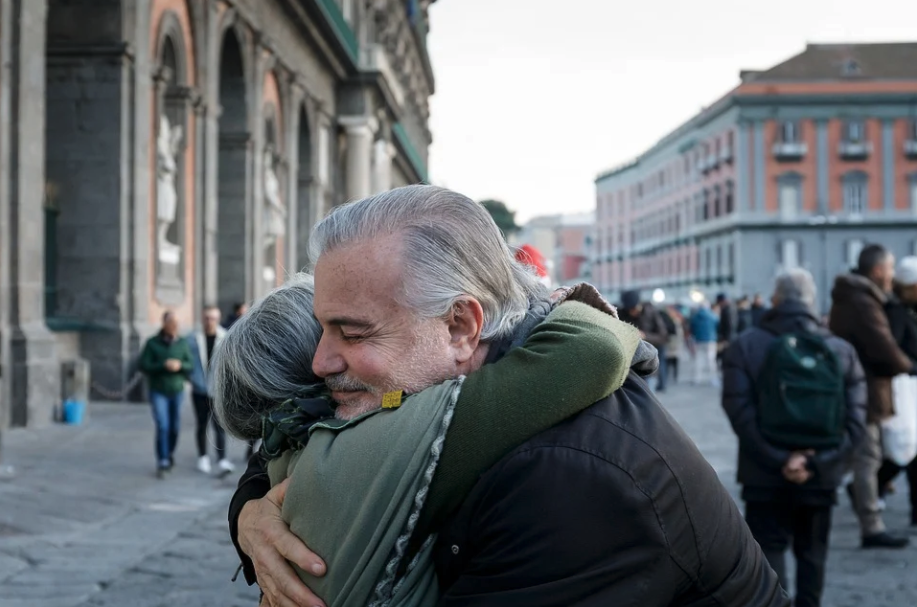
Loving-kindness has long been one of my favorite types of meditation. At times it was all I practiced. It helped turn around an unhappy break-up. It helped soften my encounters with people ever since.
Most importantly, loving-kindness has strengthened my self-compassion. This is a trait we can all benefit from. Yet it is something that many people lack these days. Our society pushes us to be tough in ways that are often so unhealthy. And men in particular like me are rarely encouraged to be vulnerable or show our sadness.
These are some reasons I have enjoyed loving-kindness. And they keep me coming back to the practice as often as I can. Here are seven more reasons. Three are from recent scientific studies. And four are from Buddhist traditional sources.
Loving-kindness slows aging
It is easy to see how loving-kindness reduces our stress. But this practice has also been shown to slow our physical aging process. This process is tracked using telomeres—tiny part of genetic data in our cells that pass from one generation of cell to the next. As we age, these slowly degrade. Scientists think this loss of telomeres may be a reason our hair turns gray. And our skin begins to sag.
But a study done by Elizabeth Hoge of Harvard Medical School found that women who practice loving-kindness have longer telomeres than their peers. Perhaps this is why many people who meditate retain a youthful and radiant look!
Loving-kindness meditation makes you more helpful and compassionate
In one study (Leiberg, Klimecki, and Singer, 2011) showed that participants who learned loving-kindness came away with greater helping behavior than a control group who had memory training. Another study of a range of mindfulness-based interventions (MBIs) found that loving-kindness meditation seemed to be the most effective for increasing compassion (Boellinghaus, Jones & Hutton, 2012).
Of course, it makes sense that this meditation would make us more tuned in to the feelings of other people. But studies like these help show that the effects are more than just “in our heads.” It changes us in the real world too.
Loving-kindness offers both short and long-term benefits

Even a small dose of loving-kindness meditation has been shown to help. It increases social connection and positivity toward strangers. Again, this is no surprise to practitioners. But psychologists have found that even a quick 10-minute practice can have measurable effects. That is huge. Perhaps we should all start our work-day with a 10-minute meditation. And end it with one before heading home to our families.
In the long term, it also builds one’s positive emotions. A study conducted by Michael Cohn and Barbara Fredrickson showed that meditators’ positive emotions increased steadily as they continued meditating. When we stop meditating, we will slowly return to our baseline. But in my experience, getting back to strong positive states happens faster and faster. It is the opposite of the way coffee or other drugs work. It gets better and stronger the more we do it.
Now for some traditional benefits.
Better sleep and dreams
According to the Buddha, this practice will help you sleep more deeply and soundly. Your dreams will be filled with joyful encounters and pleasant adventures. This makes sense if our dreams are a reflection of the emotions, thoughts, and experiences of our day.
If we practice wishing all beings well, even difficult people, then our dreams can be filled with smiling faces as we work together with all beings for universal joy.
Your body relaxes and your face is joyful
As we practice loving-kindness, we imagine smiling at ourselves, our friends, our community members, and so on. So, it is no wonder if we carry a slight smile around with us every day. Most depictions of the Buddha in paintings and sculptures show him with a tiny smile at the corner of his lips, showing both deep serenity and a touch of joy.
Also, our well-wishing puts us in a state of openness toward the world. We aren’t worried about every person judging us or verbally attacking us. Our bodies can relax as we go about our day.
Some psychologists have theorized that we evolved to be on edge and to panic. People who panicked more survived more. People who were too easy-going got eaten by tigers. But in today’s world, our evolved panic sensors go off too much. Traffic, social media, and the news can all trigger too much panic.
Loving-kindness offers a deep practice to calm the panicking part of the brain over time.
Animals and spirits are at ease around you

This might take a leap of faith for some. But for others, it makes intuitive sense. Animals sense danger too. And if you are at ease and peace and encounter a deer, perhaps they will sense that you are no danger.
Certainly, dogs have been shown to be able to identify good people. Perhaps the good people they have found have greater innate loving-kindness. Children, too, seem to sense people who are sweet and kind.
You might not believe in spirits. But if you do, you might imagine that they are similar to animals and people. They, too, sense good people.
You die with a clear mind
Most of the time we don’t think about death. It is some far-away matter for another time. But Buddhists definitely think about it. It is said that our mind at the time of death is a powerful force in directing our next birth.
So it makes sense that one would want to die with an open, clear, and loving mind. Even if we have no concerns about rebirth, dying well can be a beautiful process. It is good not only for us, but for those around us. It is one last gift we can give to the world before departing.
Meanwhile, the practice itself is a gift we can give to ourselves for as long as we live.
 Justin Whitaker, Ph.D., holds a doctorate in Buddhist ethics from the University of London. He has given lectures, and taught Buddhist studies and Philosophy at Oxford University, the University of Hong Kong, the University of Montana, and at Antioch University’s intensive study-abroad program in India. A certified meditation teacher, he is a regular contributor to Patheos.com, and Senior Correspondent for Buddhistdoor Global. He lives in Missoula with his family.
Justin Whitaker, Ph.D., holds a doctorate in Buddhist ethics from the University of London. He has given lectures, and taught Buddhist studies and Philosophy at Oxford University, the University of Hong Kong, the University of Montana, and at Antioch University’s intensive study-abroad program in India. A certified meditation teacher, he is a regular contributor to Patheos.com, and Senior Correspondent for Buddhistdoor Global. He lives in Missoula with his family.
